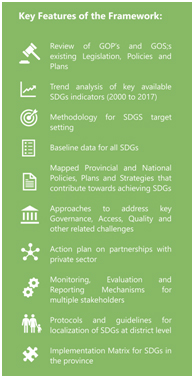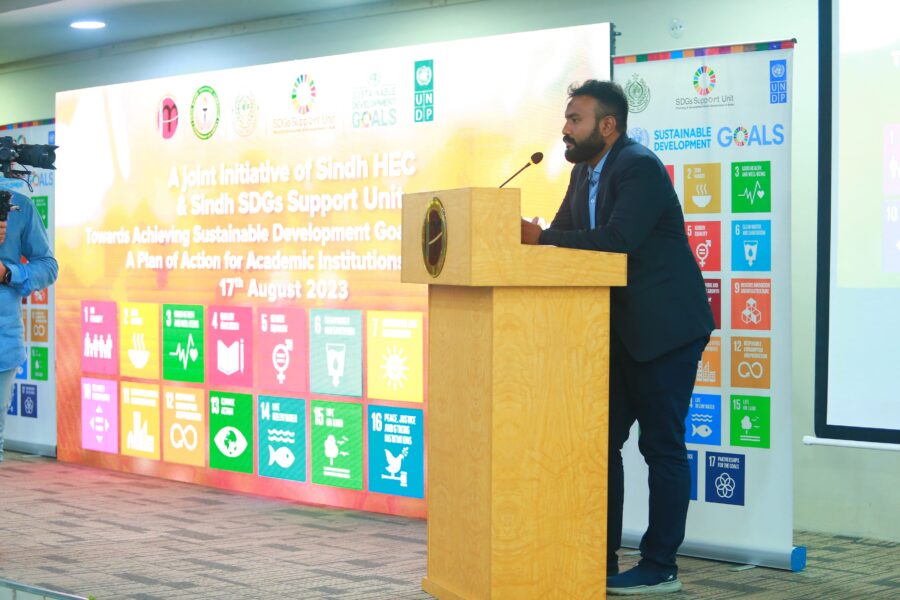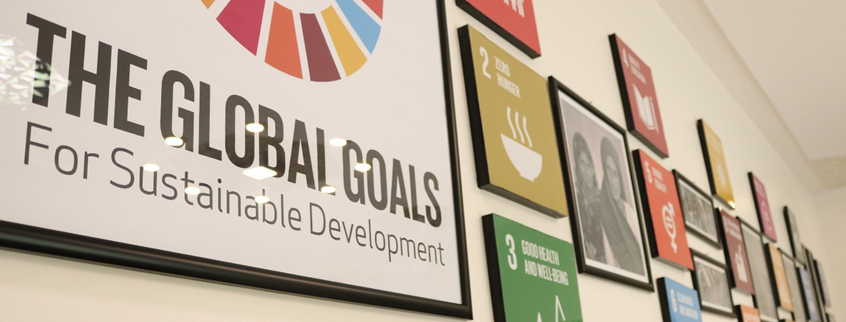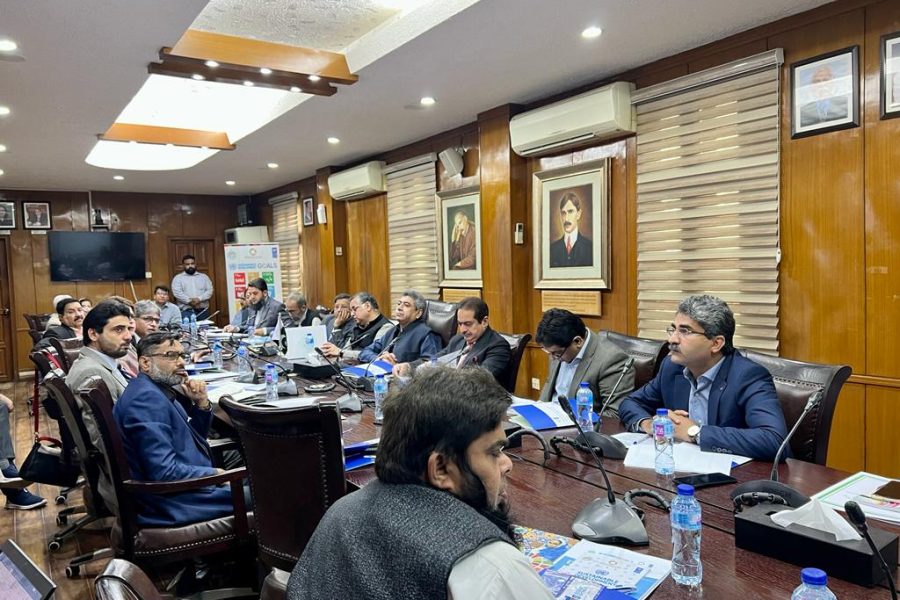Government of Sindh is developing provincial framework for SDGs, which will serve as a roadmap for mainstreaming and localizing of SDGs in the province, and enable institutions and stakeholders to achieve the priority SDGs. For this purpose, a Core Group has been established with members representing government institutions, academic institutions, private sector organizations, civil society organizations, and UN agencies.
 In developing a framework, a key challenge that emerges is the approach/process to adopt in addressing the 17 SDGs with 169 targets, and 244 indicators. The United Nations Development Group (UNDG) in its “Mainstreaming, Accelerating, Policy Support (MAPS) approach” articulated ‘cross-sectoral’ approaches to effectively and coherently support countries in implementing the 2030 Agenda, as opposed to addressing each Sustainable Development Goal individually. The SDGs are an amalgamation of interconnected thematic areas which require cross-sectoral partnerships to induce integrated development. The “cross-sectoral, integrated, or cluster approach” differs from the “sectoral or silo” approach to development under the MDGs era.
In developing a framework, a key challenge that emerges is the approach/process to adopt in addressing the 17 SDGs with 169 targets, and 244 indicators. The United Nations Development Group (UNDG) in its “Mainstreaming, Accelerating, Policy Support (MAPS) approach” articulated ‘cross-sectoral’ approaches to effectively and coherently support countries in implementing the 2030 Agenda, as opposed to addressing each Sustainable Development Goal individually. The SDGs are an amalgamation of interconnected thematic areas which require cross-sectoral partnerships to induce integrated development. The “cross-sectoral, integrated, or cluster approach” differs from the “sectoral or silo” approach to development under the MDGs era.
Reviewing the 17 SDGs, and interconnectedness therein, the existing structure of line departments within the Government of Sindh, and the priority SDGs that the Chief Minister has approved, 06 thematic areas have emerged that can help steer focused efforts towards planning and implementation of 2030 Agenda: Health, Education, Agriculture, Water and Sanitation, Environment, and Energy. Thereby, in consultation with the concerned key stakeholders, and with the approval of the Chairman, P&D and the Core Group on SDGs, 06 thematic sub-committees have been formed, and notifications have been issued to concerned departments. The committees will work closely with the Core Group on SDGs, and support in the development of SDGs Framework for Sindh.




